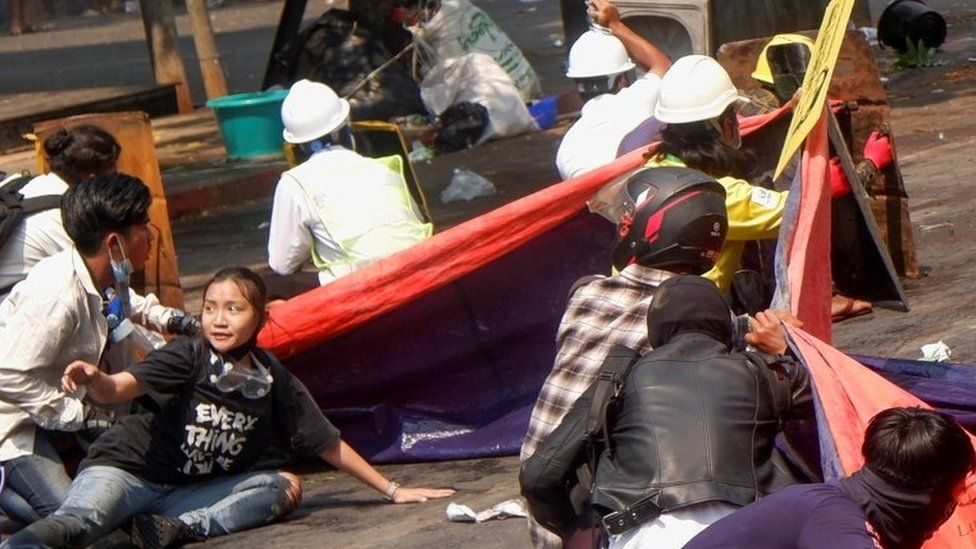.
Tribute to 19-year-old Kyal Sin, known as “Angel,” a dancer, taekwondo champion, and first-time voter who was killed during the protests against Myanmar’s CCP-backed military coup
Remember her proud, girlish way
Of marking that Election Day?
She sealed it with a purple kiss.
In hindsight, ignorance is bliss,
For harshly would her land repay.
Fearless, she danced into the fray
And faced the tear gas, dodged the spray
Of bullets till one did not miss.
Remember her!
How still and gray the angel lay!
How black the murmur of dismay
That started as an angry hiss
And rose like smoke from the abyss
Up to the clouds, which joined to say,
“Remember her!”
.
.
Bethany Mootsey is a stay-at-home mom and foster mom living in Clearwater, Florida. She is a Covenant College graduate with publications in “Church Educator.”















Those folks are being so brave.
Bethany, I am a huge fan of the rondeau, and you have used it to maximum effect. The repetition adds to the potency and poignancy of the scene – a scene that is becoming all too familiar worldwide. The final stanza is a heart-touching triumph. We should all heed these words… this evil is on our doorstep now. Bethany, thank you!
Thank you, Susan! I love the rondeau as well, although the small number of syllables permitted is tricky. I had a hard time with that last stanza especially, so I’m glad you like the effect. What is happening in Myanmar is really awful and deserves our attention. The night after her burial, police dug up Angel’s body for an autopsy to “prove” that the bullet that struck her was not from their military. We will remember!
Bethany, it’s poems like yours that bring these atrocities to the fore, and I can’t thank you enough for shining light on the dark evils of the world. I know exactly what you mean about the tricky intricacies of the rondeau, but yours was well worth the effort. Thanks to you, we will remember, indeed!
Bethany, I quite agree with Susan that this is a splendid rondeau. Like “In Flanders fields,” the best known rondeau in any language, it makes a powerful call for remembrance of the dead. But next time you write a rondeau, remember that you can use pentameter lines. Tetrameter are more common, but both line lengths have been used since Sir Thomas Wyatt began writing English poems in this form in the 16th century. For one of the best in pentameter, check out William Ernest Henley’s “What Is To Come.” If you search for the poet’s name and the poem’s title, you should find it at several websites, including poemhunter and poetrynook. Best wishes as you continue composing!
Bethany –
Such a graceful and forthright poem ! Thank you for it.
I, too, am thankful for Ms. Mootsie bringing forth the topic in her terse rondeau.